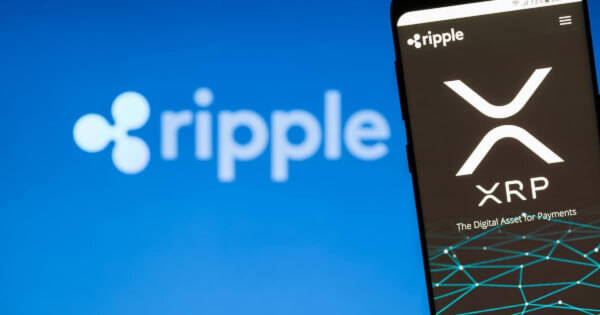San Francisco-based blockchain startup, Ripple, is optimistic that U.S. banks and financial institutions will adopt its XRP cryptocurrency for cross-border payments. This follows a significant ruling that the token is not necessarily a security.
Ripple’s general counsel, Stu Alderoty, told CNBC that the company expects to begin discussions with American financial firms about using its On-Demand Liquidity (ODL) product in Q3 2023. The ODL product uses XRP for money transfers, offering a faster and more cost-effective solution for cross-border transactions.
The U.S. Securities and Exchange Commission’s (SEC) allegations against Ripple were refuted by a New York court in a recent decision, who ruled that XRP is “not necessarily a security on its face.”
Three years have passed since Ripple and the SEC began a legal dispute over claims that the business and two of its executives made an unauthorised $1.3 billion XRP offering. These allegations were rejected by Ripple, who said that XRP is more comparable to a commodity than a security.
While the ruling did not represent a total victory for Ripple, as some sales of the token did qualify as securities transactions, Alderoty expressed optimism. He stated that the decision could provide comfort to potential customers and stimulate discussions about solving real-world problems related to cross-border value transfers and associated fees.
Currently, Ripple sources most of its business from outside the U.S.
On June 22, 2023, Ripple’s Singapore subsidiary, Ripple Markets APAC Pte Ltd, obtained in-principle approval for the Major Payments Institution License application from the Monetary Authority of Singapore (MAS).
This approval enabled Ripple to offer regulated digital payment token products and services within Singapore, while also expanding the adoption of its crypto-enabled On-Demand Liquidity (ODL) service.
In 2022, Ripple’s ODL service witnessed remarkable growth globally, with a majority of this expansion driven by its operations in Singapore.
On July 8, 2023, Ripple’s CBDC team revealed a groundbreaking use case – real estate tokenization. This method enables users to tokenize real estate assets and utilize them as loan collateral, potentially increasing access to real estate financing for more individuals. This will be made feasible by using the secure, private, and permissioned ledger known as the Ripple CBDC Platform.
Image source: Shutterstock

